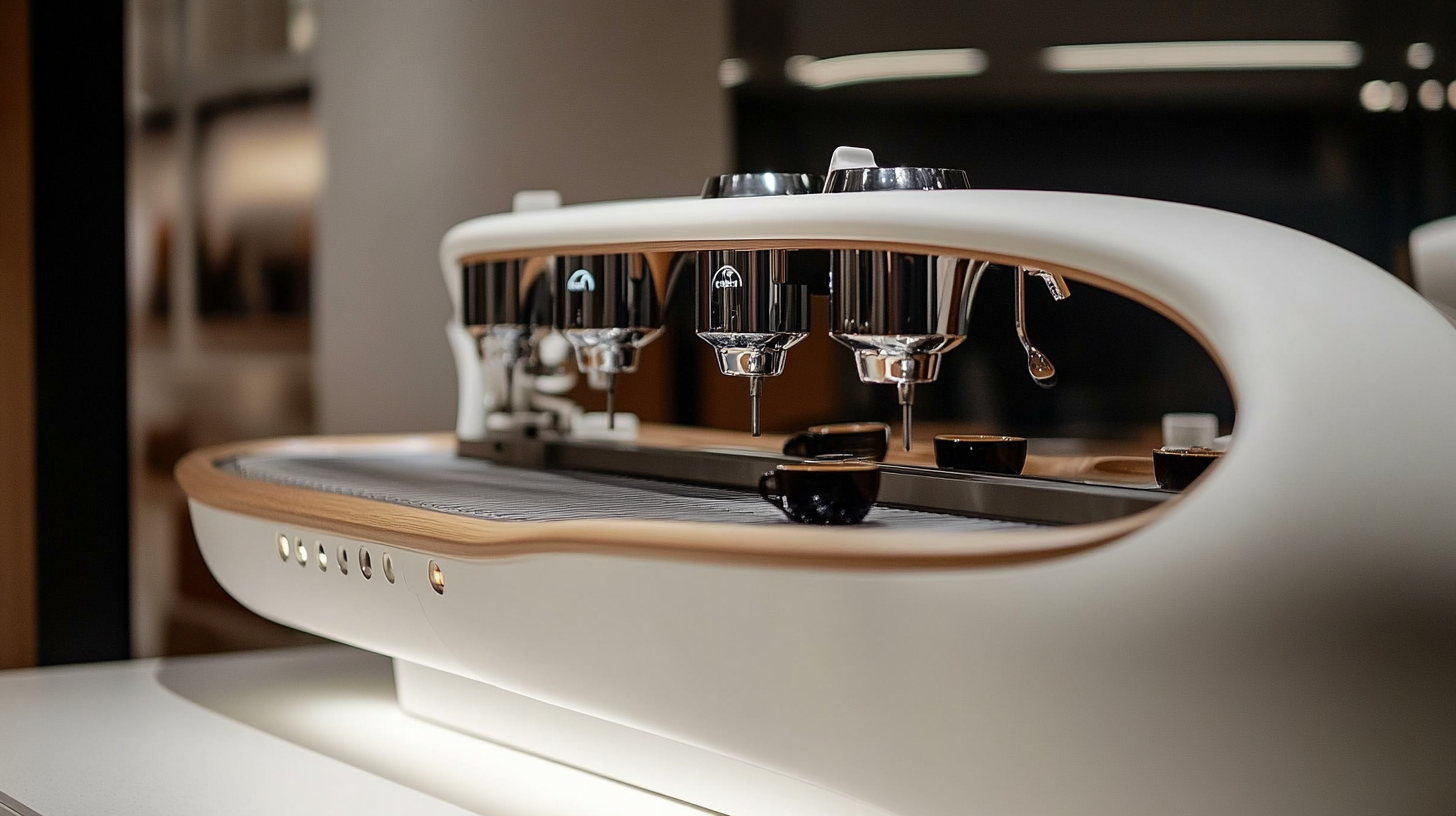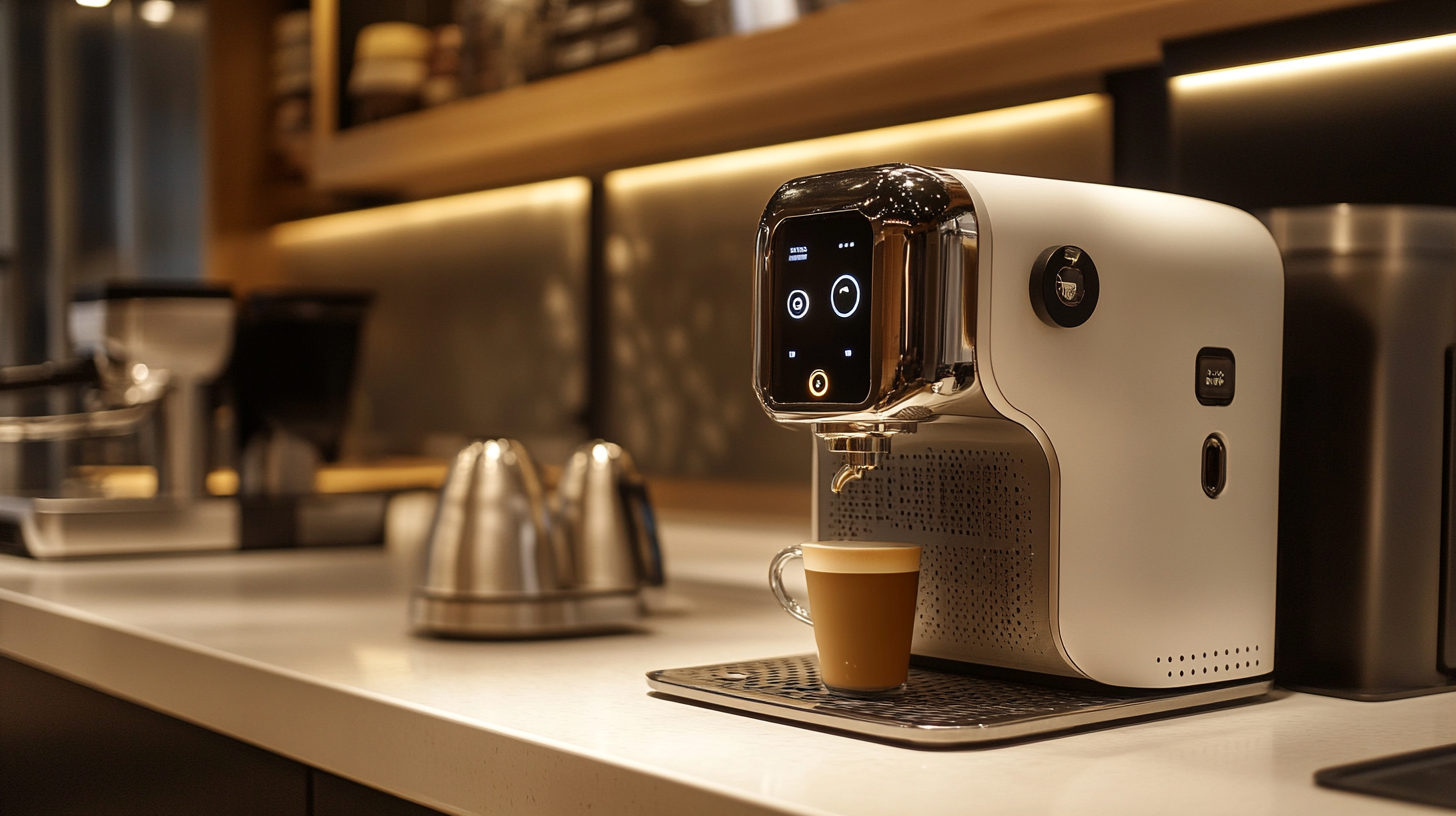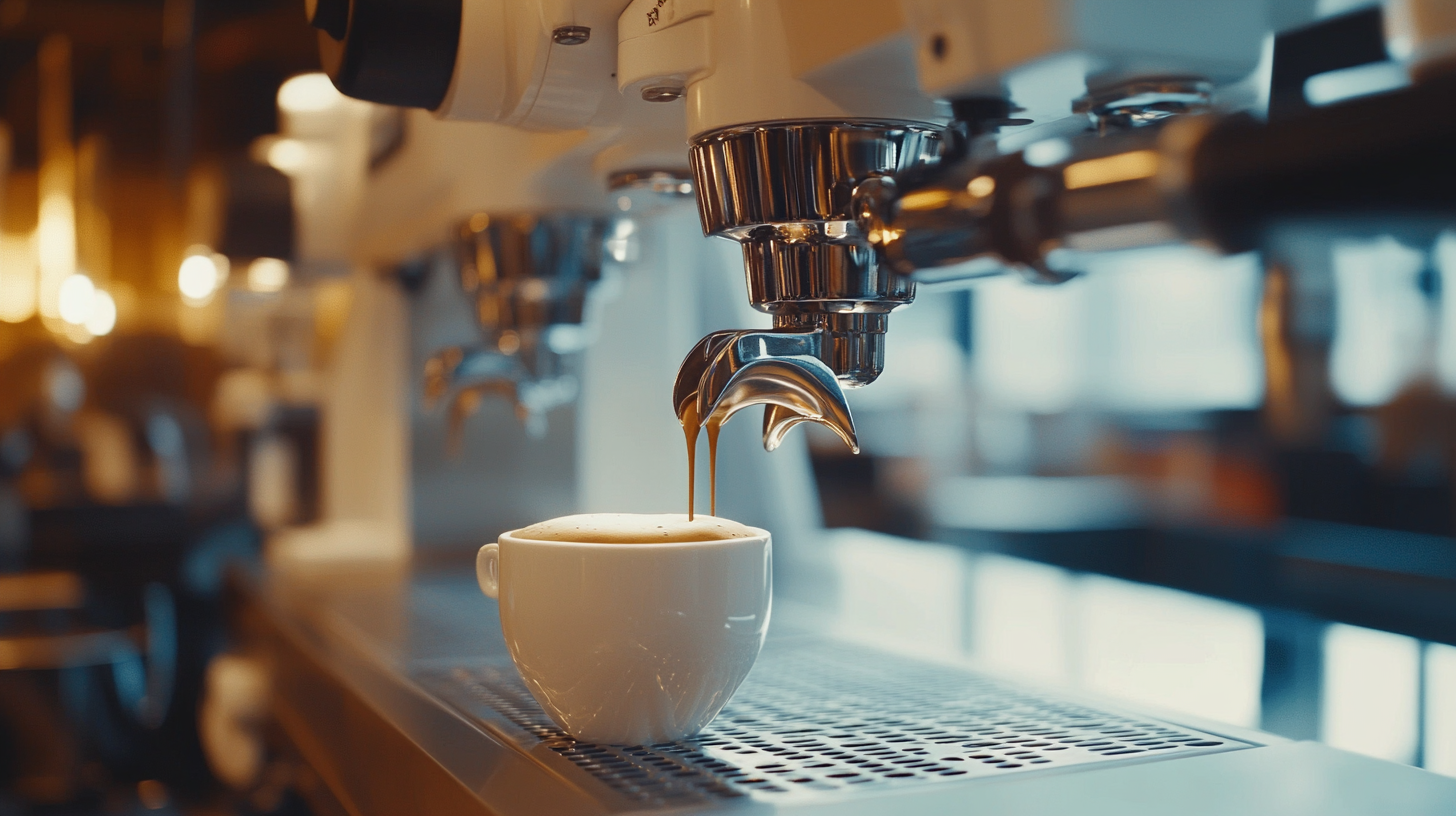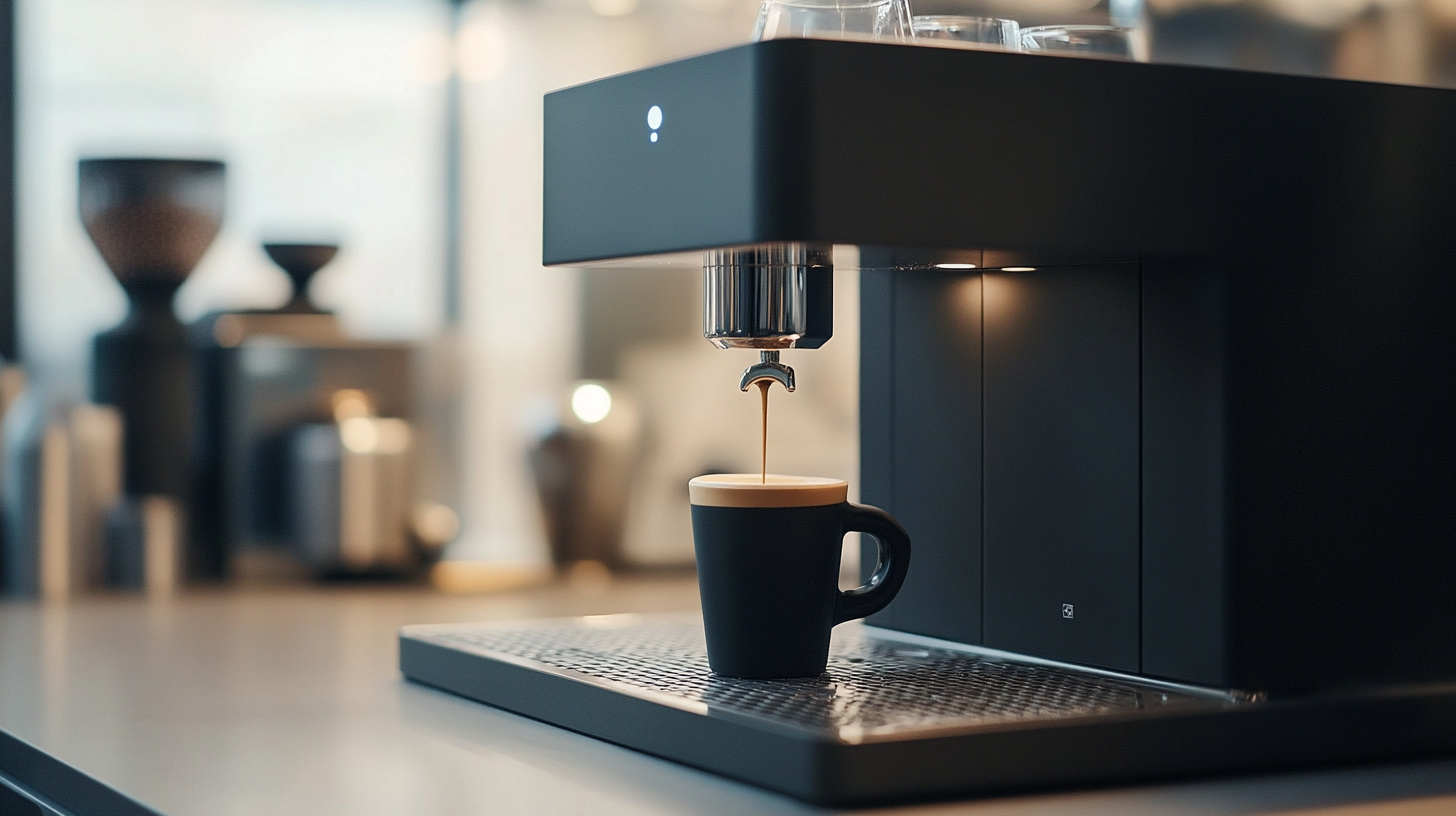Unlocking the Future of Coffee: A Comprehensive Guide to Robotic Coffee Bars for Global Buyers
As the coffee industry continues to evolve, the introduction of advanced technologies is reshaping consumer experiences and operational efficiency. According to a report by MarketsandMarkets, the global specialty coffee market is projected to reach $83.2 billion by 2025, driven by a growing demand for high-quality brews. In this dynamic landscape, Robotic Coffee Bars are emerging as a revolutionary solution, offering both precision and speed that traditional coffee shops often struggle to match. These automated systems not only enhance the quality of coffee served but also cater to the increasing expectation of convenience among coffee lovers worldwide.
With innovations in robotics and artificial intelligence, Robotic Coffee Bars are set to redefine how coffee is prepared and enjoyed. Research from the International Coffee Organization indicates that automation in the food service industry could reduce labor costs by up to 30% while increasing efficiency. This paradigm shift holds significant implications for global buyers looking to invest in this promising sector. As we explore the future of coffee through the lens of robotic bars, we’ll uncover the transformative potential these machines have to offer, paving the way for an exciting new era in the coffee experience.

The Rise of Robotic Coffee Bars: Market Trends and Predictions for 2024
The rise of robotic coffee bars is redefining the traditional coffee experience, combining technology with the beloved ritual of enjoying a hot cup. As we look towards 2024, the market trends indicate a promising shift towards automation in the coffee service industry. Customers are increasingly drawn to the efficiency, precision, and unique novelty that robotic coffee stations provide. These innovations not only streamline the brewing process but also enhance consistency in flavor, making each cup a perfect brew tailored to individual tastes. A key driver in the growth of robotic coffee bars is the increasing demand for convenience among consumers. The fast-paced lifestyle of modern society often leaves little time for long waits at traditional coffee shops. Robotic coffee bars address this need by offering quick service without sacrificing quality. Furthermore, the integration of AI and machine learning enables these machines to adapt to customer preferences, potentially personalizing the coffee experience like never before. Additionally, sustainability is becoming a crucial consideration for buyers in 2024. Many robotic coffee bars are designed to minimize waste and streamline resource use, which is appealing to environmentally conscious consumers. As they continue to evolve, these automated cafes may also offer innovative solutions such as reusable cup systems and ethically sourced coffee beans, aligning with the values of a more sustainable future. Overall, the expansion of robotic coffee bars signifies a transformation in how we enjoy our coffee, setting the stage for exciting developments in the industry.

Key Technological Advancements Driving Robotic Coffee Bar Innovations
The rise of robotic coffee bars is transforming the café landscape, driven by key technological advancements that enhance efficiency and customer experience. One of the most significant innovations is the integration of artificial intelligence and machine learning algorithms that allow robotic systems to learn from consumer preferences. These systems analyze vast amounts of data to fine-tune coffee recipes and streamline the ordering process, ensuring a personalized touch even at a high speed. This not only improves customer satisfaction but also optimizes the overall workflow in busy café environments.
Another major technological leap involves the development of sophisticated automation and robotics. Modern robotic arms and automated brewing machines facilitate consistent quality and precision in every cup of coffee. By deploying advanced sensors and real-time data analysis, these machines can monitor brewing variables such as water temperature and extraction time, which are crucial for crafting the perfect espresso. This level of precision eliminates human error and raises the standard for coffee quality across the board.
Moreover, the rise of mobile and contactless payment systems plays a pivotal role in the success of robotic coffee bars. Integration with smartphone apps allows customers to place orders remotely, reducing wait times and enhancing convenience. This seamless interaction not only boosts customer engagement but also supports a contactless experience, which has become increasingly important in today’s health-conscious environment. The convergence of these technological innovations sets the stage for a new era in coffee service, making robotic coffee bars an appealing option for global buyers seeking to stay ahead of industry trends.

Consumer Preferences Shaping the Future of Automated Coffee Experiences
As the landscape of consumer preferences evolves, the coffee industry is undergoing a transformation that is heavily influenced by technology. Robotic coffee bars are emerging as a popular choice among global buyers, driven by the need for convenience and efficiency in the fast-paced modern world. Consumers today are seeking not just quality coffee but a unique and interactive experience that merges automation with their love for caffeine.
The demand for personalized coffee options is shaping the design of automated coffee experiences. With advanced technology, robotic coffee bars can now adapt to individual tastes, offering a range of customization from brew strength to flavor profiles. This capability not only enhances customer satisfaction but also fosters a deeper connection between drinkers and their beverages. The integration of artificial intelligence allows these machines to learn consumer preferences over time, ensuring a consistently enjoyable experience that keeps coffee aficionados coming back.
Moreover, sustainability is becoming a key factor in consumer choices. Many buyers are increasingly conscious of environmental impacts and are drawn to automated solutions that focus on eco-friendly practices, such as waste reduction and energy efficiency. Robotic coffee bars that prioritize sustainable sourcing of ingredients and smart waste management systems are likely to resonate well with today's environmentally aware consumers, further shaping the future of this industry. By marrying innovation with consumer demands, the robotic coffee bar could very well become the standard for coffee shops around the globe.

Cost-Benefit Analysis: Investing in Robotic Coffee Bars for Retailers
Investing in robotic coffee bars presents a dynamic opportunity for retailers looking to enhance customer experience while optimizing operational efficiency. With the initial setup costs often being a concern, it is essential to conduct a thorough cost-benefit analysis to evaluate the long-term advantages of such an investment. Robotic coffee bars typically require a higher upfront investment than traditional coffee shops, which include equipment, installation, and training costs. However, the potential to significantly reduce labor costs and improve consistency in beverage preparation can lead to substantial savings over time.
Moreover, the automation of coffee services can attract a tech-savvy customer base that values innovation and convenience. Robotic coffee bars often operate with limited staffing, allowing retailers to reallocate human resources to other areas of their business. This shift not only reduces payroll expenses but also enhances overall productivity. Additionally, the ability to serve high-quality coffee quickly and efficiently can result in increased customer turnover, directly impacting revenue positively.
Furthermore, investing in robotic coffee bars aligns with sustainability goals by minimizing waste and optimizing ingredient usage. Many robotic systems are designed for precision, which leads to fewer mistakes in orders and less wasted product. This not only improves profitability but also appeals to environmentally conscious consumers. As coffee culture evolves, retailers must weigh the immediate costs against the broader benefits of automation, ensuring they are well-positioned in the future marketplace.
Global Case Studies: Successful Implementations of Robotic Coffee Solutions
The rise of robotic coffee bars is transforming the global coffee industry, offering innovative solutions that cater to an increasingly tech-savvy consumer base. According to a report by Research and Markets, the global robotic coffee machine market is projected to reach $4.76 billion by 2026, growing at a CAGR of 23.3%. This surge in demand is reflected in successful implementations across various regions, showing how automation can enhance operational efficiency and customer satisfaction.
One notable case study comes from the pioneering company Café X in San Francisco, which operates fully automated coffee kiosks. Utilizing advanced robotics, the machines serve high-quality, specialty coffee in under a minute, significantly reducing wait times while maintaining consistency in beverage quality. Since its launch, Café X has not only attracted coffee enthusiasts but also tech-lovers, showcasing the intersection of convenience and innovation in urban settings.
Similarly, in Japan, Starbucks has piloted a robotic system designed to prepare beverages with precision and speed. The pilot program monitored customer response and operational efficiency, revealing that robotic systems could increase throughput by up to 30% compared to traditional barista setups. This approach not only helps in coping with peak hours but also provides a unique customer experience, merging the art of coffee-making with the precision of robotics.
As global buyers observe these successful implementations, the adaptation of robotic coffee solutions is likely to proliferate. With potential benefits such as reduced labor costs, minimized human error, and enhanced customer engagement, businesses across the coffee industry are prompted to reconsider their operational models and invest in technology that could redefine the coffee experience.

